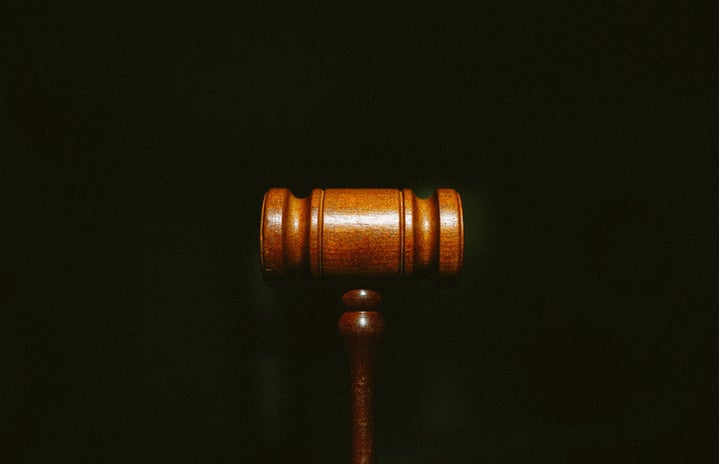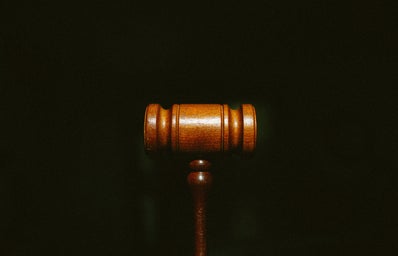Federal court documents show the University of Florida prohibited three professors from testifying in a voting rights case against the state, claiming it would be “detrimental to UF’s interests” and would pose a “conflict of interest.”
The plaintiffs, a coalition of voting rights organizations, are suing Florida Secretary of State Laurel Lee. The law in question, Senate Bill 90, limits drop box and mail in voting. Critics claim the law violates the Voting Rights Act and discriminates against communities of color, as studies have shown that precincts with larger Black populations face longer voting lines and more crowded polling stations.
Gov. Ron DeSantis signed the bill into action during the first week of May at an event streamed exclusively by Fox News. Proponents of the law assert it promotes election integrity and transparency. Lee has filed a motion to dismiss the case.
To aid their case, the prosecution sought three UF professors specializing in voting rights and elections law — Dan Smith. Sharon Austin and Michael McDonald — to testify on their behalf as expert witnesses.
The university’s response
Documents filed on Oct. 29 show the university denied all professors’ requests to testify, citing a “conflict of interest.” The university’s decision strays from precedent and has sparked an impassioned discussion concerning the role of free speech in academia.
University faculty are required to “report any outside activities and interests” by the conflict of interest office, which processed and denied the professors’ requests to serve as expert witnesses. University documents indicate a request to appear as an expert witness is typically approved so long as it is unlikely to “adversely impact UF’s interests.”
The university has claimed “litigation against the state is adverse to UF’s interests” and stated that activities such as this testimony “that may pose a conflict of interest to the executive branch of the State of Florida create a conflict for the University of Florida.”
The plaintiffs have questioned the governor’s involvement in the decision to bar professor testimony. The professors’ attorney, Paul Donnelly, has called the decision “unacceptable” and requested the university reconsider the issue.
An unprecedented ban on free speech
“It’s unprecedented in American history for a public institute to attempt a ban like this,” Donnelly said during an interview with NPR. “It’s chilling the exercise of free thought and speech.”
Margaret Russell, a Santa Clara University professor of law, told NPR the university’s decision to deny its employees the permission to testify indicates a violation of the First Amendment and opposes the “very long history […] of academic freedom of professors.”
“[Professors are] not just employees of the university,” Russell said. “They are serving the public, the students, the field of academic knowledge. And in this case, a very important area of voting rights.”
If the ban was maintained, she said it would set a “disastrous” precedent of curtailing academic freedom.
“It is important to note that the university did not deny the First Amendment rights or academic freedom of professors Dan Smith, Michael McDonald, and Sharon Austin,” a University of Florida statement said. “Rather, the university denied requests of these full-time employees to undertake outside paid work that is adverse to the university’s interests as a state of Florida institution.”
The University of Florida is linked with DeSantis. The university’s president answers to its Board of Trustees, which is composed of 13 members, six of whom are appointed by the governor. An additional five members are selected by the Board of Governors, in which 14 of 17 members are appointed by the governor and confirmed by the state’s Senate.
Additionally, Mori Hosseini, the chair of the board of trustees, is an adviser to DeSantis and has donated to the Republican Party. Based on these connections, others suggest a pervasive Republican influence throughout some of the university’s most prominent offices. Allowing its employees to testify in a case against the state would likely complicate the university’s relationship with sources of funding.
DeSantis’ office has denied involvement in the decision to bar the professor’s testimony in a statement made on Nov. 1.
“The fact remains that all public universities including UF, have policies around where conflicts of interest may arise, including paid testimony in a lawsuit,” Christina Pushaw, DeSantis’ press secretary, said.
Investigation amidst the fallout
On Nov. 1, Belle Wheelan, president of the Southern Association of Colleges and Schools’ Commission on Colleges announced the organization, which serves as the university’s accrediting body, will investigate the decision to prohibit testimony. UF has been asked to justify how the professors’ requests to serve as paid experts in the lawsuit can be reconciled with the academic freedom standards, as well as attempts to avoid undue political influence in academia.
Later on the same day, the university’s President Kent Fuchs and Provost Joe Glover stated in a letter to the student body that a task force would be appointed to review the school’s policy concerning potential conflicts of interest to “examine it for consistency and fidelity.”
The correspondence emphasized the intricate balance necessary to advance the university’s interests while protecting academic freedom. Fuchs and Glover stated it is within the professors’ rights to “testify pro bono on their own time without using university resources.”
According to the letter, the university “has a long track record of supporting free speech and our faculty’s academic freedom.”
Ten Democratic members of Florida’s congressional delegation condemned the university’s decision in a letter to Fuchs.
“We urge you to reconsider this ‘prior restraint’ on speech that violates the First Amendment as well as the deeply rooted principles of academic freedom that we know you and the University of Florida hold so dear,” U.S. Rep. Debbie Wasserman Schultz wrote.
Wheelan said the results of the investigation should be expected June 2022 at the latest. The findings will determine whether the university will not face action, be monitored, placed on probation or lose its accreditation.
The conclusive reversal
On Nov. 5, UF announced its decision to overrule its previous judgment that disallowed professors from testifying as expert witnesses for the plaintiffs in a lawsuit against the state.
Fuchs said in a letter to the campus community that he requested the university’s conflict of interest office reverse the decision and “approve the requests regardless of personal compensation, assuming the activity is on their own time without using university resources.”
Lawyers for professors Daniel Smith, Sharon Austin and Michael McDonald say their clients are still pursuing legal action because of the university’s initial decision, which was a violation of free speech rights.
“The fact remains that the university curtailed their First Amendment rights and academic freedoms, and as long as the university’s policy remains, those rights and freedoms are at risk,” David O’Neil and Paul Donnelly, the professors’ lawyers, said in a statement.
Later on Nov. 5, the three professors filed a federal lawsuit against Fuchs, Glover and the Board of Trustees, alleging a violation of their First Amendment rights. They ask the court overrule the university policy that led to the initial ban on their testimony.
Rep. Debbie Wasserman Schultz issued another statement, this time thanking Fuchs for not “caving to the political pressures that Gov. Ron DeSantis regularly inflicts on Florida’s education system.”
President Fuchs has asked the seven-member task force — comprised of experts in law, journalism, business and medicine — to prepare its initial recommendation by Nov. 29. The group’s objective is primarily to answer two questions: When should the university allow professors to serve as expert witnesses in lawsuits, and what role does faculty have in reviewing these requests?
“There’s a lot to consider even within this narrow question that the president set forth initially,” Laura Rosenbury, dean of the Levin College of Law and a member of the task force, said.
, a professor of journalism and law, is also a member of the task force.
“I think there is a larger question beyond simply expert testimony here,” Calvert said. “It would also be commentary to the media, signing onto amicus briefs, friend of the courts, any time in which a professor acting as a private citizen, speaking out in a manner of public concern, is involved.”

